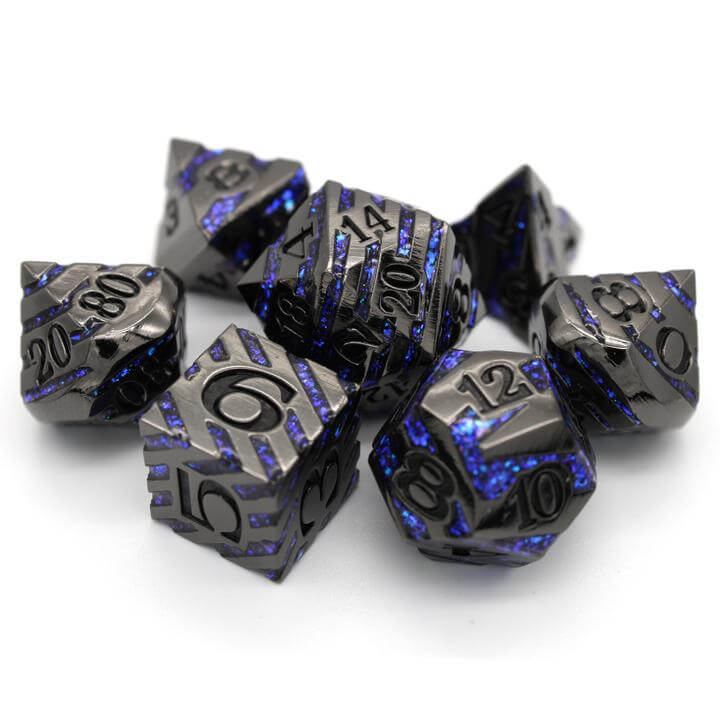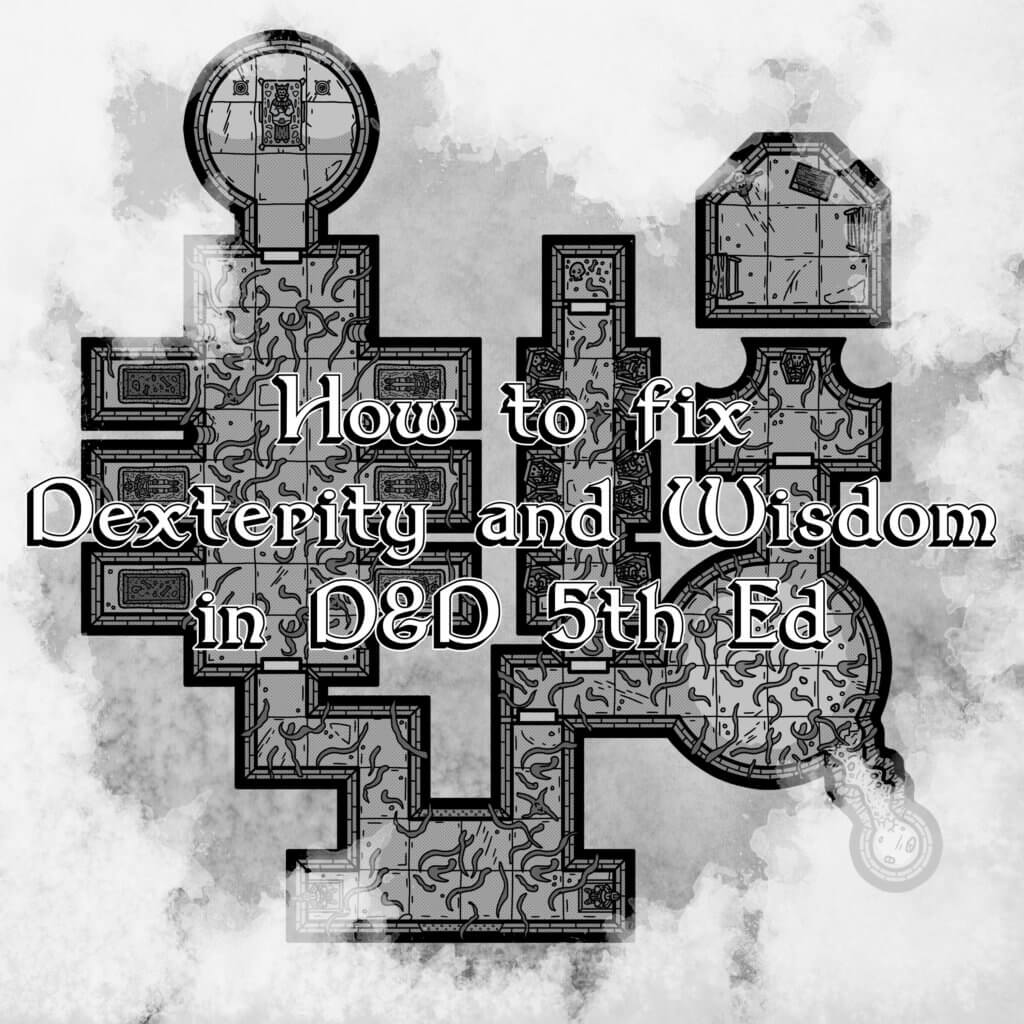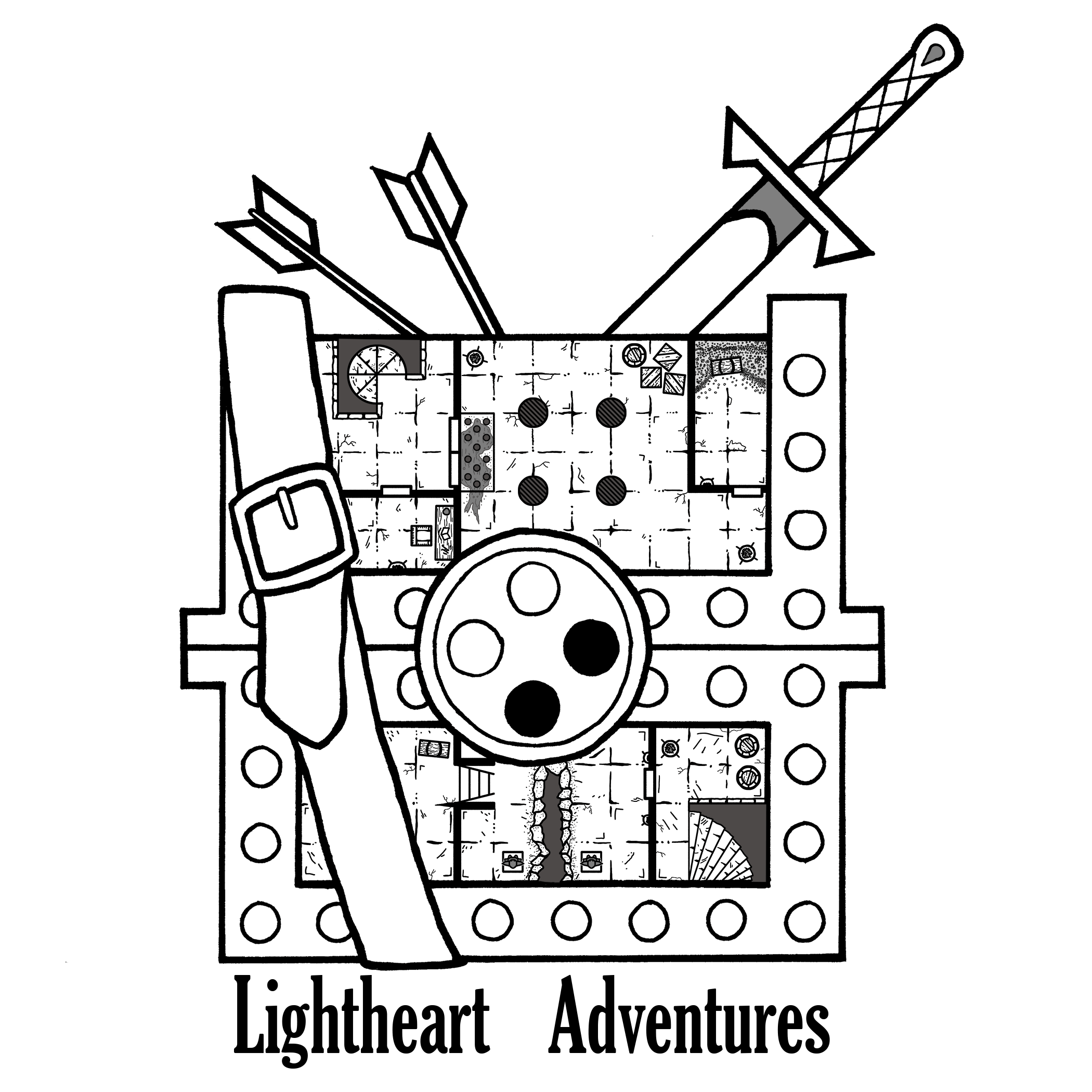What are the most important stats in a game of D&D? While some might argue that it’s a matter of opinion and character creation, it’s harder to argue that Dexterity and Wisdom hold the same level of importance as other stats. In terms of gameplay mechanics, having a high number with these stats often means that a character has a greater chance of surviving an encounter. Dexterity determines how quickly one can act in combat, how hard a character is to hit, and it is used for long distance weaponry. Wisdom is just as mechanically important due to its impact on Perception. A high perception reveals hidden objects or enemies and provides better insight on NPCs. Wisdom saves are also one of the most common save types against spell attacks. While you can absolutely still have fun with a character that has a low Wisdom and low Dexterity, there is too much “mechanical weight” behind these two stats, especially when compared to Intelligence, Charisma, Constitution, and Strength. That’s why with this week’s post I want to share some ideas on how to fix Dexterity and Wisdom in D&D 5th edition!
Disclaimer: This post contains affiliate links, meaning we may receive a small commission from qualifying purchases if you click on our links, at no additional cost to you. As Amazon affiliates, we may earn from qualifying purchases. You can see our full disclosure here. Thanks for supporting your favorite dungeon artists!
Reference Resources Needed
Dice Spotlight: Edge Boss
Looking for some heavy-duty meal dice that feature some incredible color and design? Check out this heavy metal set from Dice Envy! Court got me a set of these for Christmas last year and they’re easily my favorite dice!
Use code lightheartadv for 10% off your order!

How to fix Dexterity and Wisdom in D&D
“Fixing” Dexterity
Few would consider Dexterity their “go-to” dump stat in D&D. Like I mentioned above, it governs so much about what a character can do, especially compared to other physical stats like Strength and Constitution. Here’s a brief list of what Dexterity determines:
- Armor class
- Initiative
- Ranged weapon attack and damage modifiers for bows and crossbows.
- Acrobatics, Stealth & Sleight of hand skill checks
- Dexterity saves
All of these are pretty important for character survival, especially Dex saves, as a whopping 64 spells currently require Dexterity to resist. Compare that with the next highest common saves with Constitution at 55 and Wisdom at 53, and it’s easy to see how much worth the stat has. But how do we reduce the importance of Dexterity? I personally feel that by changing different core elements of the rules, we can lessen the importance of Dexterity to make it more balanced.
Armor Class
Dexterity is inherently tied to one’s armor class, and while taking heavier armor to offset a low Dex score is often suggested, some classes can’t wear medium or heavy armor. This means classes like spellcasters need to prioritize defensive spells and abilities or get feats to allow wearing heavier armor. However, one potential solution is to alter how armor class is determined. Instead of Dexterity determining one’s base AC, I would allow any physical stat to take its place, and then tie the levels of armor to those stats. Here’s how that would work out:
- Dexterity = Light armor: You prioritize light movement and dodging blows
- Strength = Medium armor: You prioritize modest protection to move and parry incoming attacks.
- Constitution = Heavy armor: You prioritize the heaviest armors to withstand fierce strikes.
For example, a dwarf fighter with a +3 Strength could choose to use that modifier as their AC bonus rather than Dex since they prioritize parrying attacks. In addition, the armor list could be simplified to reflect this change in stat priority, as the current model is very Dex focused.
Light Armor (Dexterity)
- Padded +1 AC w/ Stealth Disadvantage
- Leather +1 AC
- Studded leather +2 AC
Medium Armor (Strength)
- Chain shirt +2 AC w/ Stealth Disadvantage
- Scale mail +2 AC
- Half plate +3 AC
Heavy Armor (Constitution)
- Ring mail +2 AC w/ Stealth Disadvantage
- Chain mail +3 AC w/ Stealth Disadvantage
- Plate +3 AC
Since characters can use their mod bonus from any of the physical skills, the AC bonus doesn’t need to be as high to offset a missing Dex bonus.
Initiative
Hear me out: we get rid of the initiative order entirely.

This was the first thing that came to my mind when writing that first sentence, so now you all have to see it too.
This one may be controversial, but getting rid of initiative-based turns would eliminate another reason to prioritize Dexterity. Some TTRPGs that remove initiative often go about turn order based on a “you-go, I-go” that alternates from the players to the antagonists and back. This system still allows for strategic play, and doesn’t penalize poor rolls with low initiative modifiers. Best part is, we can still add in some mechanics to allow for strategy. Other games like Warhammer: Wrath & Glory allow players to expend resource dice to “seize the initiative” and take a turn right after another player has gone, instead of allowing an NPC to act. For D&D we can instead allow players to expend hit dice to do the same. Players get the fun decision to either bank potential hit points for later or use the hit die in the moment to take their round before an opponent!
Ranged attacks
Strength-based ranged attacks often get the short end of the stick when it comes to viable weapons in D&D. Unless you only use a javelin, the next furthest range increments are capped out at 60 feet maximum, and damage doesn’t get higher than a d6. Compare that to the Dex-based shortbow whose minimal striking distance outpaces most thrown weapons by 20 feet, and has a max range of 320 feet! Martial ranged weapons favor Dexterity even more, with a slew of high damage, long range attacks. Without completely reworking how ranged weaponry functions, I would suggest a solution based on real-world physics. Have you ever tried to fire a recurve bow or longbow in real life? They require a high degree of Strength to draw and fire with consistency, and I feel that’s something we can incorporate into D&D. Here’s my pitch:
- Thrown weapons require Strength (unless they have the finesse quality).
- Shortbows and longbows can use either Strength or Dexterity to function.
- Crossbows (light, heavy, hand) require Dexterity to function.
This way, it lessens the need to have Dexterity to feel useful as a Strength-based ranged attacker without completely negating the stat. Of course, one could argue that crossbows should use Intelligence as its modifier, but that’s an argument for another day.
Dexterity-based skills and saves
As mentioned above, Dexterity is the highest save requirement for spells in D&D. This one is as simple as taking a few of the other Dex-based spell saves and spreading them out to other physical stats, like Strength or Constitution. One that isn’t quite so easy to spread is the often over-reliance on skills like acrobatics and stealth. Aside from perception, stealth is one of the most common skill rolls, especially when adventuring in dangerous locales. Stealth checks even allow classes like the rogue to deal extra damage with the Sneak Attack feature, which de-incentivizes non Dex-based loadouts. To be honest, this one requires a bit more strategy to re-work, though if the other ideas were implemented, it would definitely make Dexterity less necessary.
“Fixing” Wisdom
Wisdom isn’t quite as crucial as Dexterity in terms of necessity, but it’s still up there. Wisdom is in the top three of required saves, especially since perception and insight are seen as essential skills that most dungeon masters use to limit progress. An easy fix would be to spread some of the spell save love with Intelligence and Charisma, but doing the same with the skills isn’t as easily done.
I feel there is an over-reliance on the perception skill in most of the games I’ve watched or played. It’s a poor feeling to waltz into a chamber and miss crucial details on a botched roll. So the real argument is less about changing the rules about Wisdom/perception and changing HOW we use those skills.
One suggestion to this would be to normalize dungeon masters describing all information within a space without requiring a successful perception roll to suss out extra info. Say for example the DM describes a room that has bookshelves, a chest, and a hidden door. Obviously we don’t want them to SAY there’s a hidden door, but they can thread clues throughout the room that don’t rely on skill checks. Something like mis-aligned books on the shelves, or scratch marks on the floor that are quite visible. By giving context clues, we grant players more incentive to look around and ask questions without saying “oops, you found nothing” if they fail a perception check.
Another option is to substitute other skills rather than using perception as a catch-all. Investigation is certainly a popular choice, but survival is good for tracking creatures, or nature to notice any unusual activity in a forest. Obviously we can’t totally get rid of perception, as it is fundamental for finding hidden opponents or for late-night watches, but I think with these changes we can put a little less pressure on taking Wisdom as a main stat.
Wrap up
That’s all for now on my proposal on how to fix Dexterity and Wisdom in D&D, and I hope you enjoyed it! I’m sure there’s plenty of other things we can try to even out the stat priority, and I’d love to hear your thoughts on the subject! Let me know in the comments below if you agree, think I’m full of it, or anywhere in between, and be sure to check out our other discussions on D&D and other ttrpgs. You can also drop a comment on Twitter, Facebook, Instagram, or Discord ! If you’d like access to maps and content, including downloadable PDFs of our adventures, check out our Patreon. We’re able to do what we do because of all our amazing Patrons!






